Throughout history, since the Hung Kings, Vietnamese women have made remarkable contributions such as the two Trung sisters, Lady Trieu Le Chan, Le Thi Hoa, Princess Thanh Thien, Princess Y Lan... and many other heroic, steadfast and indomitable female generals.
In today's Vietnamese society, women are always concerned about ensuring their rights such as the pursuit of happiness, health,education , training, and employment opportunities. The Vietnamese Constitution has many provisions on women's rights. First of all, the 1992 Constitution, the new 2013 Constitution has amendments, supplements and developments that demonstrate the importance of human rights, basic rights and obligations of citizens, including women's rights such as the right to inviolability of the body, protection by law of health, honor and dignity, the right to inviolability of private life, personal secrets and family secrets, the right to confidentiality of correspondence, telephone, telegram and other forms of private information exchange, the right to legal residence, the right to inviolability of residence; The right to freedom of movement and residence within the country, the right to travel abroad and return home from abroad, the right to freedom of belief and religion... The Constitution recognizes that men and women are equal before the law and does not allow discrimination. Women are given the opportunity to develop comprehensively and promote their role in society. [caption id="attachment_1202286" align="aligncenter" width="1797"] Photo Collection[/caption] According to the Law on Gender Equality, men and women have equal positions and roles in all areas of social life and family, are given conditions and opportunities to develop their capacity for the development of the community and family, and enjoy the results of that development equally and are not discriminated against based on gender. Accordingly, the State ensures gender equality in all areas of politics , economics, culture, society and family; protects and supports mothers during pregnancy, childbirth and child rearing; creates conditions for men and women to share household chores; applies appropriate measures to eliminate backward customs and practices that hinder the implementation of gender equality goals; supports gender equality activities in remote areas, ethnic minority areas and areas with particularly difficult socio-economic conditions... The Labor Code has a chapter (Chapter X) specifically regulating female workers and ensuring gender equality. Accordingly, the State has policies to ensure equal rights to work for female workers; encourage employers to create conditions for female workers to have regular jobs, widely apply flexible working schedules, part-time work, and assign work at home; take measures to create jobs, improve working conditions, enhance professional qualifications, provide health care, and enhance material and spiritual welfare for female workers to help female workers effectively develop their professional capacity, and harmoniously combine working life and family life. The Law clearly stipulates that employers are strictly prohibited from discriminating against women, implementing the principle of equality between men and women in recruitment, employment, salary increase, and labor remuneration; female workers are allowed to spend time during working hours to breastfeed and perform feminine hygiene; female workers are not allowed to be dismissed or unilaterally terminate labor contracts because of marriage, pregnancy, or raising children under 12 months old. In particular, the Law on Prevention and Control of Domestic Violence clearly states that violence against women remains a pressing issue on a global scale. Domestic violence accounts for the majority with a relatively high number of female victims. [caption id="attachment_1202318" align="aligncenter" width="624"]
Photo Collection[/caption] According to the Law on Gender Equality, men and women have equal positions and roles in all areas of social life and family, are given conditions and opportunities to develop their capacity for the development of the community and family, and enjoy the results of that development equally and are not discriminated against based on gender. Accordingly, the State ensures gender equality in all areas of politics , economics, culture, society and family; protects and supports mothers during pregnancy, childbirth and child rearing; creates conditions for men and women to share household chores; applies appropriate measures to eliminate backward customs and practices that hinder the implementation of gender equality goals; supports gender equality activities in remote areas, ethnic minority areas and areas with particularly difficult socio-economic conditions... The Labor Code has a chapter (Chapter X) specifically regulating female workers and ensuring gender equality. Accordingly, the State has policies to ensure equal rights to work for female workers; encourage employers to create conditions for female workers to have regular jobs, widely apply flexible working schedules, part-time work, and assign work at home; take measures to create jobs, improve working conditions, enhance professional qualifications, provide health care, and enhance material and spiritual welfare for female workers to help female workers effectively develop their professional capacity, and harmoniously combine working life and family life. The Law clearly stipulates that employers are strictly prohibited from discriminating against women, implementing the principle of equality between men and women in recruitment, employment, salary increase, and labor remuneration; female workers are allowed to spend time during working hours to breastfeed and perform feminine hygiene; female workers are not allowed to be dismissed or unilaterally terminate labor contracts because of marriage, pregnancy, or raising children under 12 months old. In particular, the Law on Prevention and Control of Domestic Violence clearly states that violence against women remains a pressing issue on a global scale. Domestic violence accounts for the majority with a relatively high number of female victims. [caption id="attachment_1202318" align="aligncenter" width="624"] 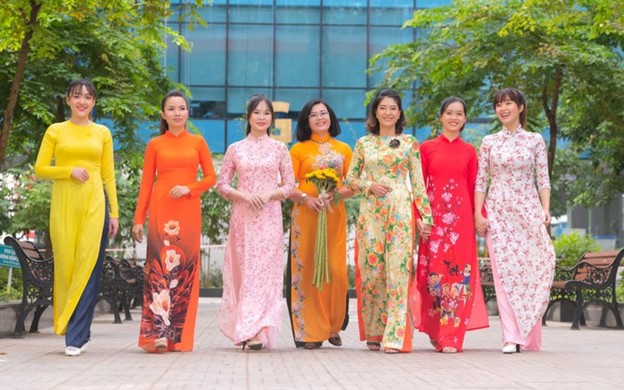 Photo Collection[/caption] To address this issue, the National Assembly passed the Law on Prevention and Control of Domestic Violence, which specifically regulates acts of domestic violence such as torture, abuse, and harm to health and life; insults and insults to honor and dignity; neglect, indifference; failure to nurture and care for family members who are children, pregnant women, and women raising children under 36 months of age... At the same time, this Law also regulates prevention, control, protection, support, and handling of violations in the prevention and control of domestic violence; conditions to ensure prevention and control of domestic violence; state management and responsibilities of agencies, organizations, families, and individuals in the prevention and control of domestic violence. According to the Law on Social Insurance, women are entitled to social insurance regimes such as: sickness, maternity, occupational accidents - occupational diseases, retirement, death, unemployment, loss of working capacity, etc. In addition, the Law also stipulates special rights for women and women are also entitled to material assistance as social relief beneficiaries. In addition, strengthening communication, education, and mobilizing the whole society to raise awareness of gender equality, for the advancement of women, ensuring the rights of women and girls, along with integrating gender equality work, for the advancement of women, ensuring the rights of women and girls in strategies, programs, plans, projects of ministries, branches and localities, perfecting and improving the capacity of staff working on gender equality and for the advancement of women at the central and local levels are also given special attention.
Photo Collection[/caption] To address this issue, the National Assembly passed the Law on Prevention and Control of Domestic Violence, which specifically regulates acts of domestic violence such as torture, abuse, and harm to health and life; insults and insults to honor and dignity; neglect, indifference; failure to nurture and care for family members who are children, pregnant women, and women raising children under 36 months of age... At the same time, this Law also regulates prevention, control, protection, support, and handling of violations in the prevention and control of domestic violence; conditions to ensure prevention and control of domestic violence; state management and responsibilities of agencies, organizations, families, and individuals in the prevention and control of domestic violence. According to the Law on Social Insurance, women are entitled to social insurance regimes such as: sickness, maternity, occupational accidents - occupational diseases, retirement, death, unemployment, loss of working capacity, etc. In addition, the Law also stipulates special rights for women and women are also entitled to material assistance as social relief beneficiaries. In addition, strengthening communication, education, and mobilizing the whole society to raise awareness of gender equality, for the advancement of women, ensuring the rights of women and girls, along with integrating gender equality work, for the advancement of women, ensuring the rights of women and girls in strategies, programs, plans, projects of ministries, branches and localities, perfecting and improving the capacity of staff working on gender equality and for the advancement of women at the central and local levels are also given special attention.Thu Hang





![[Photo] Vietnamese and Hungarian leaders attend the opening of the exhibition by photographer Bozoky Dezso](https://vphoto.vietnam.vn/thumb/1200x675/vietnam/resource/IMAGE/2025/5/29/94d8ceca5db14af3bf31285551ae4bb3)

![[Photo] Prime Minister Pham Minh Chinh receives a bipartisan delegation of US House of Representatives](https://vphoto.vietnam.vn/thumb/1200x675/vietnam/resource/IMAGE/2025/5/28/468e61546b664d3f98dc75f6a3c2c880)


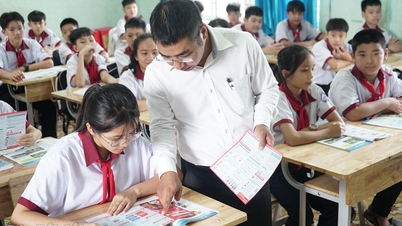




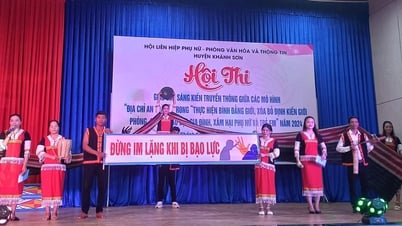












![[Photo] 12th grade students say goodbye at the closing ceremony, preparing to embark on a new journey](https://vphoto.vietnam.vn/thumb/1200x675/vietnam/resource/IMAGE/2025/5/28/42ac3d300d214e7b8db4a03feeed3f6a)




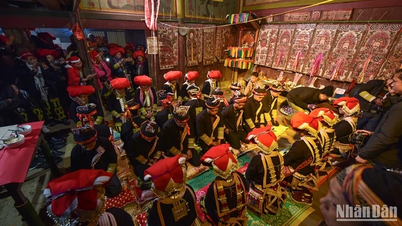










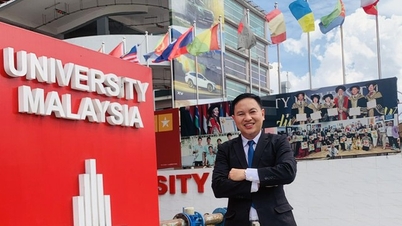




















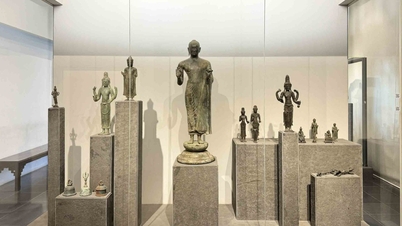
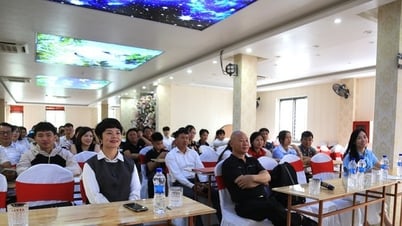











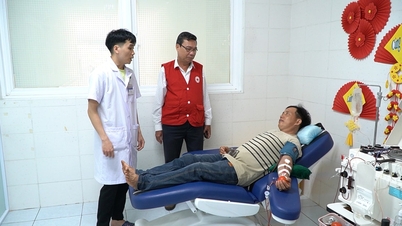














Comment (0)